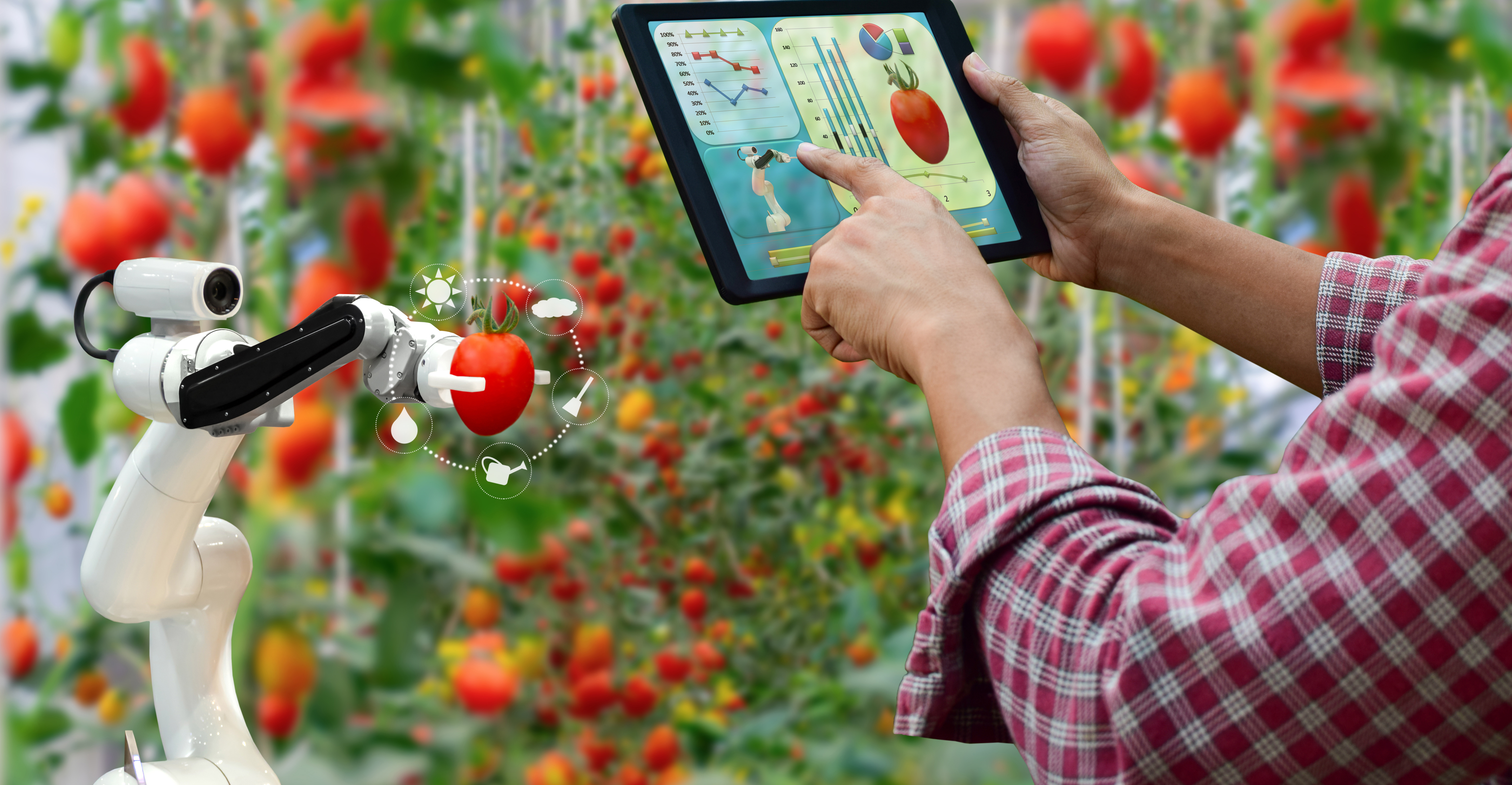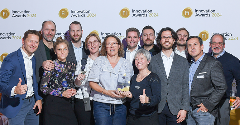News
‘Impressive growth’: Spain’s entrepreneurs show growing appetite for food tech
8 Mar 2021In recent years, some places, such as Silicon Valley or Tel Aviv, have become synonymous with food tech and innovation. Spain does not tend to spring to mind.
However, a recent report, compiled and published by Forward Fooding, suggests that the country’s agri-food innovation ecosystem is one-to-watch. Last year saw the launch of the Food & Food Tech Innovation Hub in Barcelona, which aims to promote the country’s agri-food ecosystem, and the number of start-ups developing tech-driven products is on the rise.

Alessio d'Antino, CEO of Forward Fooding, said Spain’s food tech scene has seen “impressive growth” in the past few years, thanks in part to its entrepreneurial capital and “amazing” food heritage.
From Natural Machines, which makes 3D food printers, to Cubiq, which is developing cell-cultured fats that are high in healthy omega-3 fatty acids; or from Novameat, a plant-based start-up developing meat analogues to AlgaEnergy, a biotechnology company working in the field of microalgae, Spanish food tech companies are developing products that meet the demands of a global market.
José M. Cobo, CEO of strategic consultancy The Food Intelligence Company, said that young people have been responsible for driving the growth of Spain’s food tech scene in the past five years.
“[…] demand for new food models by millennials catalysed the need to innovate with new textures, flavours, new moments of consumption, new food origins, sustainable models, reduction of food waste and the accelerated growth of flexitarian diets, promoting animal well-being with lower CO2 footprint. The high youth unemployment also was a driving factor to explore alternative pathways,” he said.
“Although entrepreneurship is not considered as a stable profession, it is a great alternative to develop a creative idea and to discover new personal and professional goals that are close to Spain’s culture, its roots, gastronomy and agri-food market.”
Going forward, Cobo of The Food Intelligence Company, predicted increased digitalisation of the agriculture sector and more circular economy solutions, fuelled by the global COVID-19 pandemic.
“To increase efficiency, productivity as well as safety, new models of food traceability and industrial process and water tech optimisation are now topics more start-ups are working on,” said the CEO, who previously held senior positions at The Coca-Cola Company and Danone.
Several start-ups are already tapping into these trends and white spaces.
Andalusia-based Vestigia offers Blockchain-based traceability for food industry supply chains. It is currently certifying food products with designations of origin and tracing the barrels used to age spirit drinks through its ’CryptoTag’ product, which has been rolled out in the US, Australia, and Mexico through a Spanish exporter.
Agrosingularity, based in Murcia, is developing Spain’s circular economy with its vegetable- and fruit-based powders that are made using fresh agricultural by-products. It says its decentralized model reduces the environmental impact, empowers primary producers, and provides on-trend ingredients for food and nutrition brands.
Clara Bartra, food entrepreneur and innovation advisor, said Spain’s food industry is well positioned to drive innovation thanks to the central role food occupies, both culturally and economically, although there are challenges.
“[…] Spain is still a country that hosts many small start-ups rather than established ones,” she said. “There is a disconnection between the traditional food industry that has the power to push for scale but is culturally risk-averse, the retail chains that have the power to reach consumers but do not bet enough on innovation, and the start-ups with impactful ideas and courageous entrepreneurs but little funding. Fortunately, investors as well as policy makers have started identifying food tech as key to face global food challenges and a promising area to invest public and private funds.”
Spain’s food sector accounts for 9% of national GDP, and employs half a million people in more than 30,000 companies – 96% of which are small and medium enterprises (SMEs), according to the report.
Related news

Oat Barista: Innovation for game-changing beverages
20 Nov 2025
Oat Barista is a clean label, sustainable, and innovative drink base specifically designed to create the perfect foam in one single ingredient.
Read more
Nitrites: Pressure grows on UK to follow EU’s lead
20 Nov 2025
Pressure is growing on the UK to follow the EU’s lead after the bloc revised its regulations on the permitted levels of nitrites and nitrates in cured meats.
Read more
Empowering innovation in fortification and colouration
13 Nov 2025
Divi’s Nutraceuticals offers a large portfolio of innovative, high-quality ingredients for foods, beverages, and supplements, with bespoke solutions and expert support for product success.
Read more
Danone highlights digestive health as potential ‘tipping point’ for food industry
13 Nov 2025
Danone is betting on a food industry “tipping point” that will bloat the market for healthy products, particularly those related to gut health.
Read more
Standing Ovation and Bel scale up casein production from dairy co-products
11 Nov 2025
Foodtech company Standing Ovation has partnered with cheese specialist Bel Group to manufacture dairy serums for industrial-scale casein production via precision fermentation.
Read more
AI attraction means foodtech startups must ‘prove’ rather than ‘promise’
4 Nov 2025
Reports suggest that artificial intelligence (AI) is sucking investment from foodtech and agritech, but investors say the picture is complicated.
Read more
Will postbiotics become the go-to functional ingredient?
3 Nov 2025
Postbiotics show significant promise for the functional foods market due to their safety profile and beneficial bioactive properties, research suggests.
Read more
Meet the finalists of the Fi Europe Innovation Awards 2025
31 Oct 2025
Who made it to the shortlist of the Fi Europe Innovation Awards 2025? Read about the 23 companies making food and drink products healthier and manufacturing processes more efficient.
Read more
Penguin and Club bars no longer classed as chocolate
30 Oct 2025
Penguin and Club bars can no longer be classified as chocolate after the pladis-owned McVitie’s brands turned to cheaper alternatives amid the ongoing cocoa crisis.
Read more
Shorter drying time, sweeter success!
30 Oct 2025
Curious about cost-effective, sustainable and delicious candy making? Stefan Wessel reveals how Avebe’s solutions reduce drying time and energy use by up to 50%.
Read more